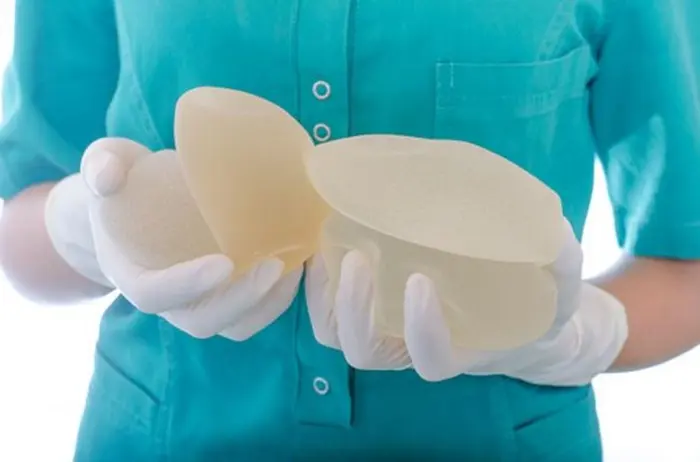aline breast augmentation is a popular cosmetic procedure that enhances the size and shape of the breasts using saline-filled implants. While the immediate results can be gratifying, potential patients often wonder about the longevity of these implants. This article delves into the lifespan of saline breast implants, factors affecting their durability, and what to expect in the long term.
Understanding Saline Breast Implants
What Are Saline Breast Implants?
Saline breast implants are silicone shells filled with sterile salt water (saline). They are inserted empty and then filled once in place, allowing for smaller incisions during surgery. These implants are popular for their adjustable size and natural feel.
The Procedure
The procedure for saline breast augmentation typically involves the following steps:
Consultation: Discuss goals, expectations, and medical history with the surgeon.
Preparation: Pre-surgery instructions, including medication adjustments and fasting.
Surgery: Performed under general anesthesia. Incisions are made, implants are inserted and filled, and incisions are closed.
Recovery: Initial recovery lasts a few days, with full recovery taking several weeks.
See Also: What Are The Most Realistic Breast Implants?
Longevity of Saline Breast Implants
Average Lifespan
Saline breast implants do not last a lifetime. On average, they last between 10 to 20 years. However, this is a general estimate, and some patients may experience a longer or shorter lifespan.
Factors Influencing Longevity
Several factors can influence how long saline breast implants last:
Quality of the Implants: Higher quality implants from reputable manufacturers tend to last longer.
Surgical Technique: The skill and experience of the surgeon can impact the longevity of the implants.
Patient’s Lifestyle: Activities that put stress on the chest can affect implant durability.
Body’s Reaction: Individual differences in how the body reacts to implants can influence longevity.
Signs of Implant Wear
Over time, implants can wear out. Signs that implants may need replacement include:
Changes in Size or Shape: Noticeable deflation or asymmetry.
Pain or Discomfort: Unusual pain, tenderness, or swelling.
Capsular Contracture: Hardening of the tissue around the implant.
Visible Wrinkling or Rippling: Changes in the surface appearance of the breasts.
Long-Term Considerations
Regular Check-Ups
Regular check-ups with your surgeon are crucial to monitor the condition of your implants. These visits can help detect potential issues early.
Imaging Tests
Periodic imaging tests, such as mammograms or MRIs, may be recommended to ensure the implants are intact and to monitor for any complications.
Replacement or Removal
If implants show signs of wear or complications arise, replacement or removal may be necessary. This decision will be based on the patient’s condition and preferences.
Risks and Complications
Common Risks
Like any surgical procedure, saline breast augmentation carries certain risks:
Infection: Can occur during or after surgery.
Bleeding: May require additional medical attention.
Scarring: Can vary depending on individual healing.
Implant-Specific Complications
Specific to saline implants, potential complications include:
Rupture and Deflation: The saline solution is harmlessly absorbed by the body, but the implant will need replacement.
Capsular Contracture: Scar tissue around the implant can harden, causing discomfort or changes in appearance.
Rippling: Visible folds or wrinkles in the implant.
Advances in Implant Technology
Improved Materials
Advances in implant materials have led to more durable and natural-feeling implants. Today’s saline implants are designed to reduce risks and improve longevity.
Better Surgical Techniques
Modern surgical techniques have improved the placement and durability of implants, resulting in fewer complications and longer-lasting results.
Patient-Specific Customization
Customization options, such as size, shape, and placement, allow for better alignment with individual patient anatomy, enhancing the overall outcome and longevity.
Maintaining Implant Health
Healthy Lifestyle
Maintaining a healthy lifestyle can positively impact the longevity of breast implants. Regular exercise, a balanced diet, and avoiding smoking can contribute to overall health and implant durability.
Monitoring Changes
Being vigilant about changes in breast appearance or sensation and reporting these to your surgeon promptly can prevent complications from worsening.
Follow-Up Surgeries
Patients should be prepared for the possibility of follow-up surgeries. Replacement or removal may be necessary at some point, depending on individual circumstances and implant condition.
Conclusion
Saline breast implants are a popular choice for those seeking breast augmentation, offering a balance of safety, effectiveness, and a natural feel. While they do not last a lifetime, understanding the factors that influence their longevity and maintaining regular follow-ups with your surgeon can help ensure the best possible outcome. Patients considering saline breast augmentation should discuss their expectations and potential for future surgeries with their healthcare provider to make an informed decision.
Related topics:

